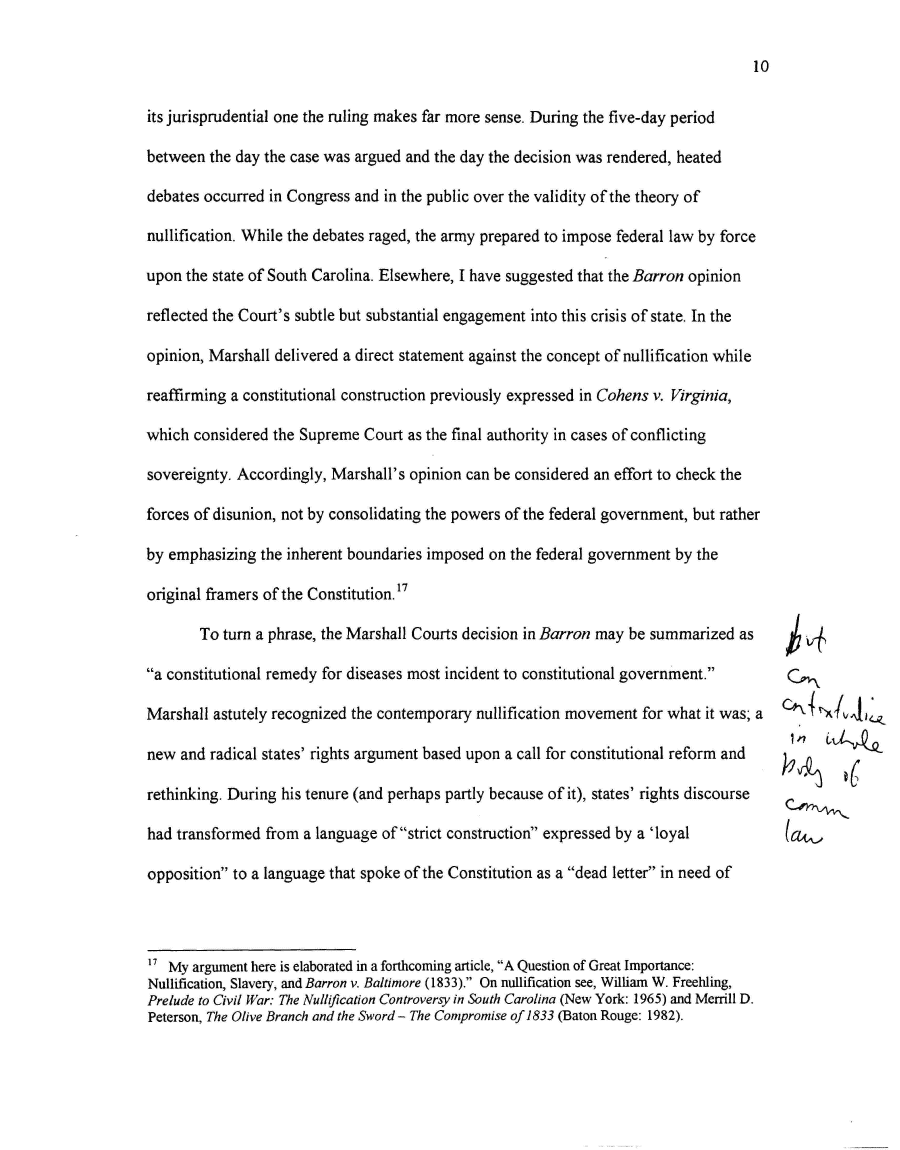|
10
its jurisprudential one the ruling makes far more sense. During the five-day period
between the day the case was argued and the day the decision was rendered, heated
debates occurred in Congress and in the public over the validity of the theory of
nullification. While the debates raged, the army prepared to impose federal law by force
upon the state of South Carolina. Elsewhere, I have suggested that the Barron opinion
reflected the Court's subtle but substantial engagement into this crisis of state. In the
opinion, Marshall delivered a direct statement against the concept of nullification while
reaffirming a constitutional construction previously expressed in Cohens v. Virginia,
which considered the Supreme Court as the final authority in cases of conflicting
sovereignty. Accordingly, Marshall's opinion can be considered an effort to check the
forces of disunion, not by consolidating the powers of the federal government, but rather
by emphasizing the inherent boundaries imposed on the federal government by the
original framers of the Constitution.17
To turn a phrase, the Marshall Courts decision in Barron may be summarized as L ^L
"a constitutional remedy for diseases most incident to constitutional government."
Marshall astutely recognized the contemporary nullification movement for what it was; a
1/7
new and radical states' rights argument based upon a call for constitutional reform and \ -
0
rethinking. During his tenure (and perhaps partly because of it), states' rights discourse
had transformed from a language of "strict construction" expressed by a 'loyal \
opposition" to a language that spoke of the Constitution as a "dead letter" in need of
17 My argument here is elaborated in a forthcoming article, "A Question of Great Importance:
Nullification, Slavery, and Barron v. Baltimore (1833)." On nullification see, William W. Freehling,
Prelude to Civil War: The Nullification Controversy in South Carolina (New York: 1965) and Merrill D.
Peterson, The Olive Branch and the Sword- The Compromise of 1833 (Baton Rouge: 1982).
|

